第92章 LETTER 8(34)
My letter is grown so long that I shall say nothing to your lordship at this time concerning the study of modern history,relatively to the interests of your country in domestic affairs;and I think there will be no need to do so at any other.The History of the rebellion by your great grandfather,and his private memorials,which your lordship has in manuscript,will guide you surely as far as they go:where they leave you,your lordship must not expect any history;for we have more reason to make this complaint,"abest enim historia literis nostris,"than Tully had to put it into the mouth of Atticus,his first book of laws.But where history leaves you,it is wanted least:the traditions of this century,and the latter end of the last,are fresh.Many,who were actors in some of these events,are alive;and many who have conversed with those that were actors in others.The public is in possession of several collections and memorials,and several there are in private hands.You will want no materials to form true notions of transactions so recent.Even pamphlets,written on different sides and on different occasions in our party disputes,and histories of no more authority than pamphlets,will help you to come at truth.Read them with suspicion,my lord,for they deserve to be suspected;pay no regard to the epithets given,nor to the judgments passed;neglect all declamation,weigh the reasoning,and advert to fact.With such precautions,even Burnet's history may be of some use.
In a word,your lordship will want no help of mine to discover,by what progression the whole constitution of our country,and even the character of our nation,has been altered:nor how much a worse use,in a national sense,though a better in the sense of party politics,the men called Whigs have made of long wars and new systems of revenue,since the revolution;than the men called tories made,before it,of long peace,and stale prerogative.When you look back three of four generations ago,you will see that the English were a plain,perhaps a rough,but a good-natured hospitable people,jealous of their liberties,and able as well as ready to defend them,with their tongues,their pens,and their swords.The restoration began to turn hospitality into luxury,pleasure into debauch,and country peers and country commoners into courtiers and men of mode.But whilst our luxury was young,it was little more than elegance:the debauch of that age was enlivened with wit,and varnished over with gallantry.The courtiers and the men of mode knew what the constitution was,respected it,and often asserted it.Arts and sciences flourished,and,if we grew more trivial,we were not become either grossly ignorant,or openly profligate.Since the revolution,our kings have been reduced indeed to a seeming annual dependence on parliament;but the business of parliament,which was esteemed in general a duty before,has been exercised in general as a trade since.The trade of parliament,and the trade of funds,have grown universal.Men,who stood forward in the world,have attended to little else.
The frequency of parliaments,that increased their importance,and should have increased the respect for them,has taken off from their dignity:and the spirit that prevailed,whilst the service in them was duty,has been debased since it became a trade.Few know,and scarce any respect,the British constitution:that of the Church has been long since derided;that of the State as long neglected;and both have been left at the mercy of men in power,whoever those men were.Thus the Church,at least the hierarchy,however sacred in its origin or wise in its institution,is become a useless burden on the state:and the state is become,under ancient and known forms,a new and undefinable monster;composed of a king without monarchical splendor,a senate of nobles without aristocratical independency,and a senate of commons without democratical freedom.In the mean time,my lord,the very idea of wit,and all that can be called taste,has been lost among the great;arts and sciences are scarce alive;luxury has been increased but not refined;corruption has been established,and is avowed.When governments are worn out,thus it is:the decay appears in every instance.Public and private virtue,public and private spirit,science and wit,decline all together.
That you,my lord,may have a long and glorious share in restoring all these,and in drawing our government back to the true principles of it,Iwish most heartily.Whatever errors I may have committed in public life,I have always loved my country:whatever faults may be objected to me in private life.I have always loved my friend;whatever usage I have received f rom my country,it shall never make me break with her:whatever usage Ihave received from my friends,I shall never break with one of them,while I think him a friend to my country.These are the sentiments of my heart.
I know they are those of your lordship's:and a communion of such sentiments is a tie that will engage me to be,as long as I live,My lord,Your most faithful servant.